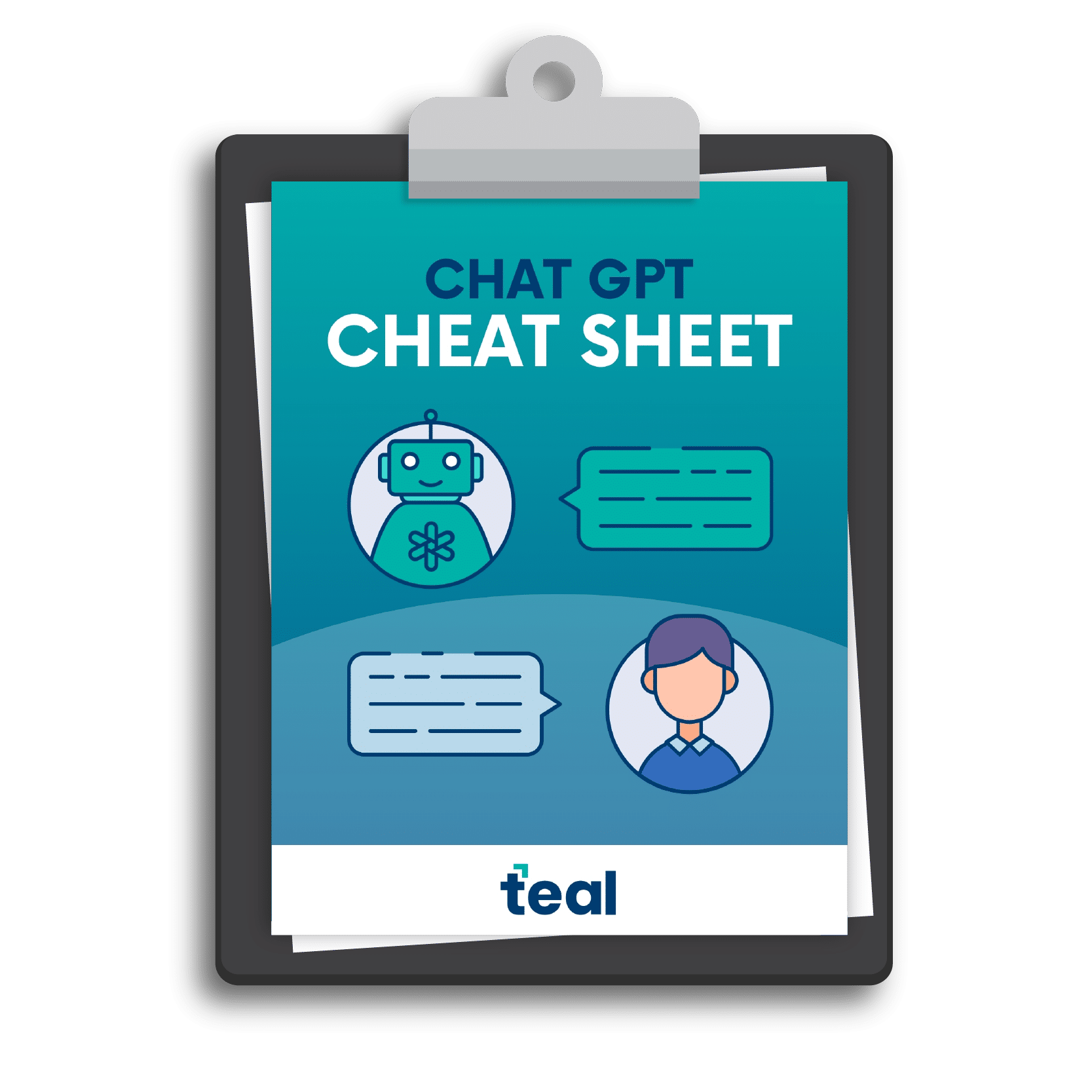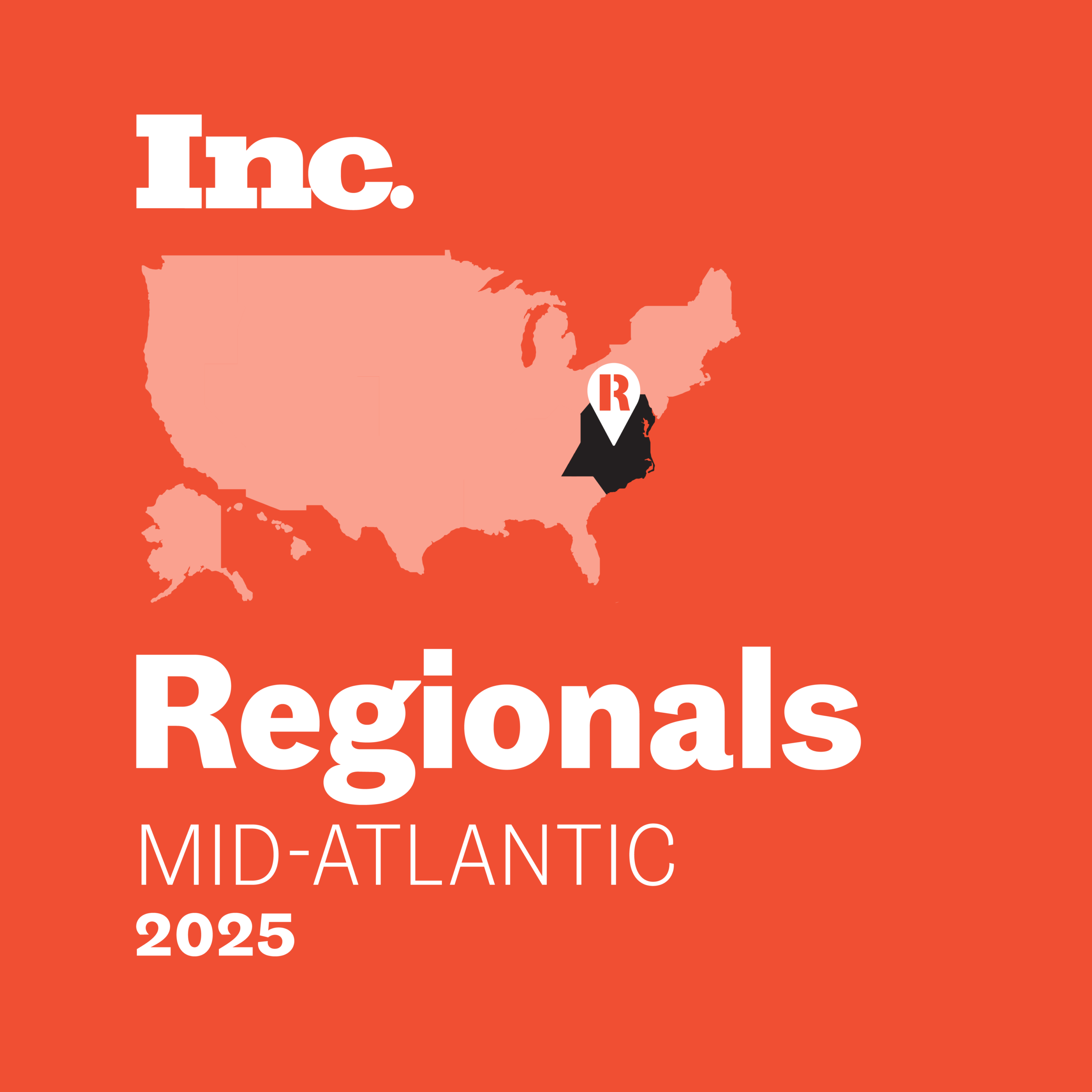Until recently, most practical applications of artificial intelligence have been out of sight and out of mind. They include the algorithms behind self-driving cars, advanced robotics, and high-stakes financial trading.
Today, conversational AI, much like the one you may be familiar with from 2001: A Space Odyssey (1968) or Her (2013), is no longer a distant vision but a readily available tool that all employees can instantly access and benefit from.
This tool is called ChatGPT, and it is revolutionizing the way small businesses operate, helping them compete in an increasingly complex and fast-paced market.
Want to master AI? Download the free ChatGPT cheat sheet, crafted by our tech experts, and start optimizing your AI results today.

Learn how to write effective AI prompts with this ChatGPT cheat sheet and start effortlessly boosting your small business’s productivity.
What Is ChatGPT?
ChatGPT is a type of artificial intelligence called a large language model (LLM). Users can interact with it via a chat-based user interface. It was developed by OpenAI, an American AI research laboratory funded by Microsoft, the co-founder of LinkedIn, the co-founder of PayPal, and other individual and corporate investors.
Powered by the Generative Pre-trained Transformer (GPT) technology, ChatGPT understands and generates human-like text based on the input it receives. In practice, it looks like this:

As you can see, ChatGPT has quite a way with words, and its reasoning capabilities are equally impressive:

These amusing examples do a good job of showing how ChatGPT works. Still, they barely scratch the surface regarding the potential applications of this technology in the world of small business.
7 ChatGPT Use Cases SMBs Can Leverage
Small- and medium-sized businesses (SMBs) can leverage the power of ChatGPT to improve their operations in many ways.
1. Personal Assistant
ChatGPT can be every employee’s assistant. The tool can summarize long emails and extract essential information from press releases, news articles, or reports from competitors and industry leaders. It can also answer questions quickly, explain complex concepts in simple terms, and much more.
Example prompts:
- Summarize the following text: <text goes here>
- Explain how to create a pivot table in Excel and provide step-by-step instructions.
2. Sales and Lead Generation
Using ChatGPT, sales reps can streamline the most tedious aspects of their work, such as lead generation or reporting. The AI tool will happily ingest lengthy information about any customer and use it to quickly produce a draft of a sales pitch or a wordy report about the customer’s performance.
Example prompts:
- Create a sales pitch for <potential customer> based on their past purchases and browsing history.
- Generate a report about our customers’ preferences and behaviors, highlighting potential upsell opportunities.
3. Internal and External Communication
Many employees spend much of their day communicating with colleagues or external stakeholders. Such employees can save loads of time by using ChatGPT to summarize emails and compose replies. When used this way, the AI becomes a translator capable of instantly turning informal language into corporate-speak.
Example prompts:
- Summarize the main points of the following email and suggest a response: <email goes here>
- Translate this message into polite, business-friendly language.
4. Marketing Content Creation
When used appropriately, ChatGPT can simplify the creation of many types of marketing content, including copy for online ads, social media posts, and email campaigns. The tool can imitate the style of existing content or generate original content from scratch, allowing marketing teams to dedicate more of their time to higher-level activities.
Example prompts:
- Generate copy for a social media post to promote our new product based on the following information: <information about the product>
- Write a Twitter thread of 10 tweets talking about <topic>.

Learn how to write effective AI prompts with this ChatGPT cheat sheet and start effortlessly boosting your small business’s productivity.
5. DIY Troubleshooting
Because ChatGPT is trained on, among other sources, countless troubleshooting guides, user manuals, and discussion boards, it can be surprisingly helpful when assisting with technical issues. On the one end of the spectrum, it can provide general instructions for troubleshooting an uncooperative printer. On the other end of the spectrum, it can analyze code and suggest fixes for programming bugs.
Example prompts:
- Suggest a fix for the following code error: <error message>
- Provide step-by-step instructions for setting up a WordPress website on a shared server for a new project.
6. Writing Job Listings
It can take a lot of time to craft a compelling job listing that accurately captures a position’s requirements and responsibilities while also engaging enough to entice top candidates. ChatGPT allows stakeholders to provide the necessary information in the form of an unstructured prompt and receive a well-written job listing in return.
Example prompts:
- Generate a job listing for a receptionist with the following requirements: <list of requirements>
- Provide suggestions for improving the language and phrasing in the following job listing: <job listing text>
7. Brainstorming and Red Teaming
Last but certainly not least, ChatGPT can be a valuable tool for brainstorming sessions and red teaming exercises. Decision-makers can use it to generate various ideas, explore different perspectives, and look for potential weaknesses or vulnerabilities in plans, policies, and systems.
Example prompts:
- Brainstorm ideas for a new product launch campaign. Here’s some information about our product: <product information>
- Please help us improve the following Bring Your Own Device policy: <policy>
Explore more Teal-tested business productivity software for small businesses.
Potential Pitfalls of Using ChatGPT in Business
As helpful as ChatGPT can be in the business context, there are some serious potential pitfalls all businesses should carefully consider before employing the technology across their operations. These include:
Data Privacy
Many examples in this article expect the user to enter sensitive customer information and submit it to OpenAI, a third party whose Privacy Policy clearly states that the company may collect personal information in the input.
This fact alone dramatically limits the number of businesses or industries that can use ChatGPT effectively and safely. For them, Stanford’s Alpaca AI represents an attractive alternative because it can be run locally.
Quality Control
Large language models like ChatGPT sometimes hallucinate, confidently generating convincing text based on flawed reasoning and factual errors. Hallucinations can be unpredictable and occur in the middle of long, otherwise perfectly fine passages, so it’s not always easy to spot them.
Even without them, the quality of ChatGPT’s output can vary quite a bit – with the same prompts sometimes producing excellent results and other times not-so-great results.
Lack of Insider Perspective
ChatGPT was trained on a massive collection of text gathered from the internet. The tool doesn’t know anything about how individual businesses operate on the inside, and it also may not have industry-specific knowledge such businesses consider essential. The lack of insider perspective may cause ChatGPT to provide insufficient or incorrect information.
Despite these problems, the productivity-boosting potential of ChatGPT and other similar AIs is enormous. It’s only a matter of time before employees discover them, which could lead to a dangerous proliferation of a new kind of shadow IT.
Businesses should prepare for the inevitable arrival of AI in the workplace by developing policies and procedures that ensure tools like ChatGPT are safely and responsively used to prevent that from happening.
Enjoy the Benefits of AI & Be Proactive
In 2023, it’s finally possible for every employee to have their own personal AI assistant, always ready to answer questions, extract information, help with repetitive tasks, and much more. But with great power comes great responsibility.
Businesses that decide to introduce artificial intelligence into their workplace must do so securely, in compliance with privacy regulations, and in the most ethical manner possible.
Proactive implementation of policies and procedures will help you prevent data breaches, legal and financial repercussions, and reputational damage from occurring.
Need Help Implementing AI in Your Org?
Teal is a fully managed IT service provider in the Minneapolis and Washington DC areas. We’re helping our small and midsized clients become more productive with AI – while providing insights on how to protect their data.
If you’re interested in learning more about our managed IT services and how we can help your organization achieve greater success, contact a Teal business technology advisor today.














